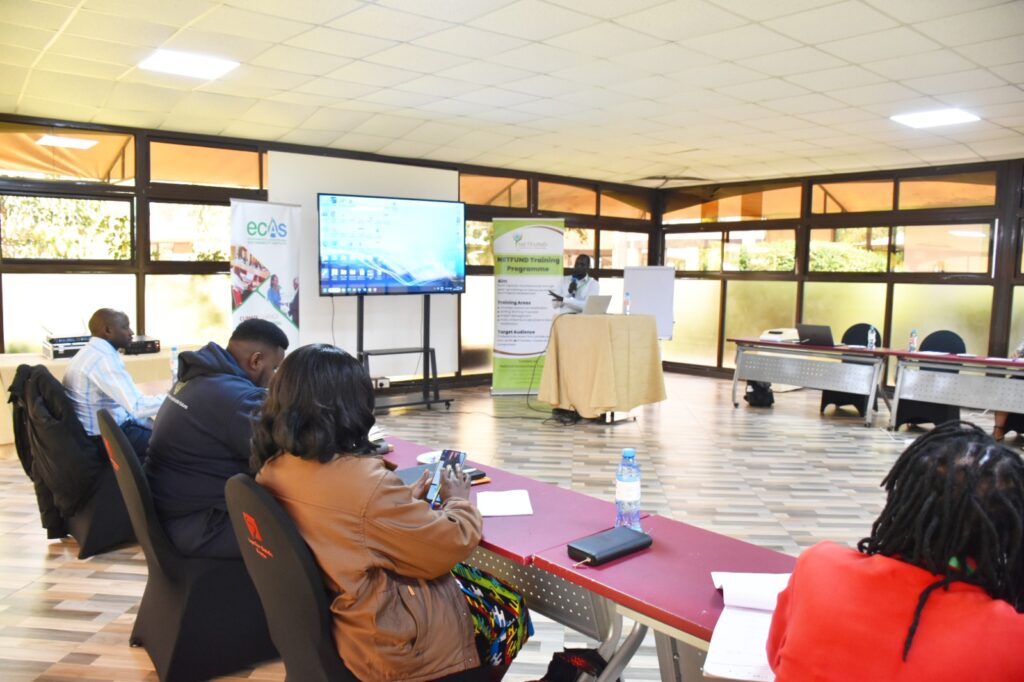
CONCEPT NOTE
INTERNATIONAL TRAINING ON LINKAGES BETWEEN FOOD SECURITY, NUTRITION AND SOCIAL PROTECTION: AN INTRODUCTION TO BASIC CONCEPTS AND PRINCIPLES
COURSE BACKGROUND
In a world facing persistent hunger, malnutrition, and growing vulnerability to climate and economic shocks, understanding the linkages between food security, nutrition, and social protection has never been more crucial. Social protection programs, when designed and implemented effectively, can play a vital role in addressing the root causes of food insecurity and malnutrition.
This course, offered by Environmental Capacities and Sustainability (ECAS), provides a foundational understanding of how these three areas intersect, and how integrated approaches can enhance outcomes for vulnerable populations. It introduces participants to the fundamental concepts, global frameworks, and practical strategies that underpin effective programming in the context of sustainable development, humanitarian aid, and resilience building.
COURSE OBJECTIVES OF THE TRAINING
By the end of this course, participants will be able to:
- Understand the basic concepts and definitions of food security, nutrition, and social protection.
- Explain how social protection interventions can contribute to improved food security and nutrition outcomes.
- Identify the key components of integrated programming across the three sectors.
- Recognize policy and programmatic entry points for improving coordination and coherence between social protection, food systems, and nutrition.
- Analyze the enabling environment and institutional mechanisms that support effective integration.
WHAT YOU WILL LEARN
Participants will gain knowledge and practical insights in the following areas:
- The basic definitions and conceptual frameworks of food security, nutrition, and social protection.
- How these sectors interrelate and contribute to achieving Sustainable Development Goals (SDGs).
- Ways in which social protection can be used as a platform to address food insecurity and malnutrition.
- Examples of integrated programming, including lessons learned from global experiences.
- Policy considerations and institutional arrangements necessary to support cross-sectoral collaboration.
DURATION AND PROGRAM
TARGET PARTICIPANTS
This course is designed for professionals involved in the planning, implementation, or evaluation of food security, nutrition, and social protection programs. It is particularly relevant to policy-makers, government officials, development practitioners, programme managers, humanitarian actors, researchers, and representatives of NGOs, civil society, and donor agencies who are working across or interested in multi-sectoral strategies for sustainable development.
TRAINING MODULES
| No | Module | Details | |
| 1. | Introduction to Food Security, Nutrition and Social Protection |
This module introduces the foundational concepts and principles underpinning each of the three sectors. It also discusses the rationale for linking them in both development and emergency contexts.
Key objectives include:
|
|
| 2. | Interlinkages and Synergies Between the Three Sectors |
This module explores how food security, nutrition, and social protection can complement and reinforce one another, particularly in addressing multidimensional poverty and vulnerability.
Key objectives include:
|
|
| 3. | Designing and Implementing Integrated Programs |
This module provides guidance on practical aspects of program design, highlighting how to align objectives, stakeholders, and delivery mechanisms across sectors.
Key objectives include:
|
|
| 4. | Enabling Environment and Policy Frameworks |
In the final module, learners will explore the governance, institutional, and policy conditions necessary to foster collaboration across sectors.
Key objectives include:
|
|
TRAINING STYLE
The modules will be taught through PowerPoint presentations, and lectures and will include a case study/field visit, breakout sessions, case studies and other interactive discussion components.
The course will also include a few guest speakers, both in person and via Zoom and other online learning platforms for overseas speakers. This provides useful real-world insights alongside the more theoretical aspects of the course.
The conference faculty shall consist of experienced decision makers, as well as practitioners and representatives from established educational and research institutions active around climate change, engineering and international development. Throughout the course, theoretical presentation of concepts will be moderated and more group discussions and plenary engagements will be optimized. PowerPoint presentations will be made by facilitators and resource persons, to highlight key concepts before embarking on group work.
GENERAL NOTES
- Training manuals and additional reference materials are provided to the participants.
- Upon successful completion of this course, participants will be issued with a certificate.
- We can also do this as a tailor-made course to meet organization-wide needs. Contact us to find out more: info@ecasiafrica.org.
- Payment should be sent to our bank account before the start of training and proof of payment sent to: info@ecasiafrica.org.
ABOUT ECAS INSTITUTE
The ECAS Institute designs and delivers independent and targeted training, research, and consulting services. Our work focusses on climate change and resilience building, carbon markets, renewable energy, nature-based solution, biodiversity conservation, agriculture and food systems, We are located in Nairobi Kenya and work across the African region. We have implemented training and research assignments in Kenya, Tanzania, Uganda, South Sudan, Somalia, Malawi, Rwanda, Congo, and South Africa. Globally, we have supported our partners from the UK, Denmark, Italy, Sweden, Germany, and USA.

